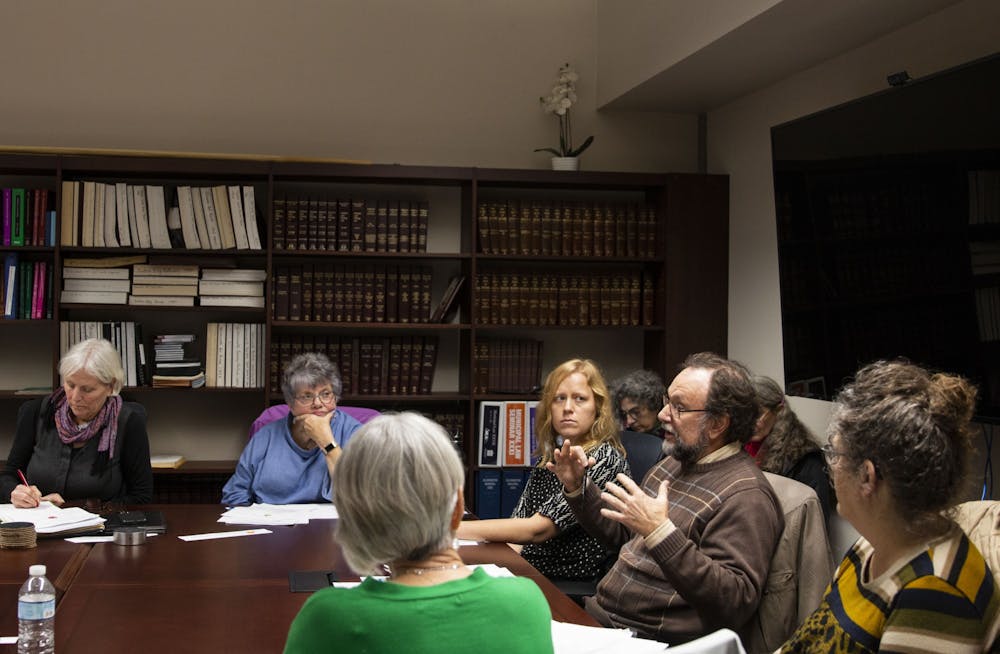A Farmers' Market Advisory Council meeting ended with uncertain feelings Monday night as council and community members debated over whether or not Bloomington's city-run farmers market would be better run by a private group next year.
“This market is extraordinarily fragile,” council chair Bruce McCallister said. “All it’s going to take is a couple weeks of disruption early in May, and people are going to stop coming, vendors are going to stop coming, and it could go to dust that quickly.”
The possibility of changing the how the Bloomington Community Farmers’ Market is run comes after an intense 2019 market season. Throughout the summer and fall, groups clashed over the presence of Schooner Creek Farm owners Sarah Dye and Doug Mackey, who have been connected to white nationalist group American Identity Movement, formerly known as Identity Evropa.
Although privatization had come up briefly in conversations before, market coordinator Marcia Veldman said this is the first time the board had seriously considered whether to recommend the change.
The nine-person council does not make final decisions about the market but instead offers recommendations to the Board of Park Commissioners, which is scheduled to discuss the market’s future at a Jan. 9 meeting.
In case the city continues to run the market next year, the advisory council spent most of the meeting looking over a draft of proposed changes to the 2020 market contract.
These changes, which have been made with the help of the city legal department, include policies to address rules that restrict protests in the main market area, the city’s ability to close the market if needed and cases in which a vendor can be removed.
The mock contract was created before a legal panel about the First Amendment and city obligations took place Saturday, which the council said might result in some changes.
After discussion of the contract, Purple Shirt Brigade protester and Shalom Community Center Director Forrest Gilmore said he thinks the rules banning protests from the market could lead to First Amendment lawsuits against the city.
He said because the groups are protesting Schooner Creek, an entity in the market, their demonstrations do not fall under the time, place and manner restrictions governments can use in some cases to regulate free speech.
“You are looking forward to getting a lot of people arrested next year?” Gilmore asked.
Grassroots Conservatives leader Robert Hall said the city should keep control of the market instead of privatizing it. He said he believes the protesters want it privatized so people can be excluded.
Hall said the contract changes discussed by the council should be enough to keep the market civil going into the next season.
“That should nip it in the bud,” Hall said. “You can’t have the protesters out with the market. That’s not right.”
Rachel Rosolina, a customer representative on the council, said she has enjoyed serving but is glad that her term is about to come to an end because of how frustrating it’s been to see a single vendor create so many problems for the market, including hurting other farmers.
She said she also understands the protesters’ concerns about being forced to demonstrate away from Schooner Creek when their message is specifically against its farmers.
“I do feel like the only way we could move forward right now, that I see, is to go private and hopefully have the same space that we had,” Rosolina said. “I really don’t know how we get around the roadblock we’re in right now about that.”




